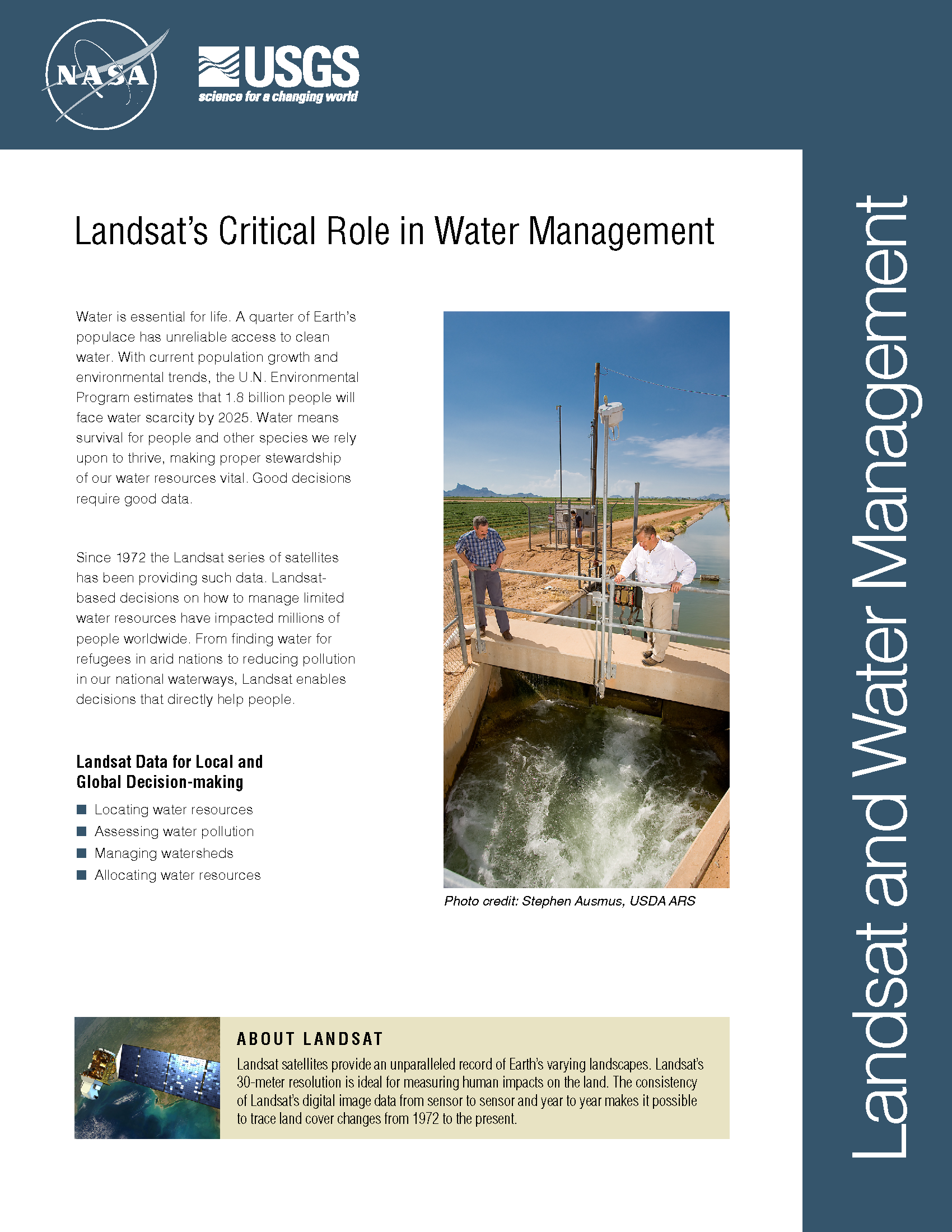Landsat’s Role in Managing Water Resources
Water is essential for life. A third of Earth’s populace has unreliable access to clean water. With current population growth and environmental trends, the U.N. Environmental Program estimates that 1.8 billion people will face water scarcity by 2025. Water means survival for people and other species we rely upon to thrive, making proper stewardship of our water resources vital. Good decisions require good data. Since 1972 the Landsat series of satellites has been providing such data. Landsat-based decisions on how to manage limited water resources have impacted millions of people worldwide. From finding water for refugees in arid nations to reducing pollution in our national waterways, Landsat enables decisions that directly help people.
Landsat Satellite Imagery Used to Assess the Impact of Burma’s Cyclone Nargis
Contact: Janice Nelson, USGS USGS is providing Landsat satellite imagery to aid rescue and recovery efforts in Burma (Myanmar) in the aftermath of Cyclone Nargis’s landfall on May 3. International
An Earth Day Perspective: NASA Satellites Aid in Chesapeake Bay Recovery
Contact: Andrew Freeberg From the distant reaches of the universe, to black holes and Saturn’s rings, NASA explores some of the most far-out parts of space. But NASA also does
Landsat’s Role in Chesapeake Bay Management
• John Smith’s Bay Then & Now – When Captain John Smith first explored the Chesapeake Bay in 1607, the “Great Shellfish Bay,” as it was called by the Algonquian
Landsat Helps Locate Groundwater Discharge in Delaware
The Delaware Geological Survey (DGS) at the University of Delaware has released a new technical report that identifies locations of groundwater discharge to estuaries and determines locations of discharge into
Establishing Historical Land Cover
USGS and NASA researchers teamed together in a highly ambitious effort to reconstruct historical land cover and biophysical parameters of the eastern U.S. Their resulting data sets will support future
Landsat Helps Establish Bushfire Impact on Water Yields in Australia
Source: Commonwealth Scientific and Industrial Research Organisation In the summer of 2002-03, bushfires burnt through 700,000 ha of forests in northeast Victoria in Australia. This region supplies 38 percent of


